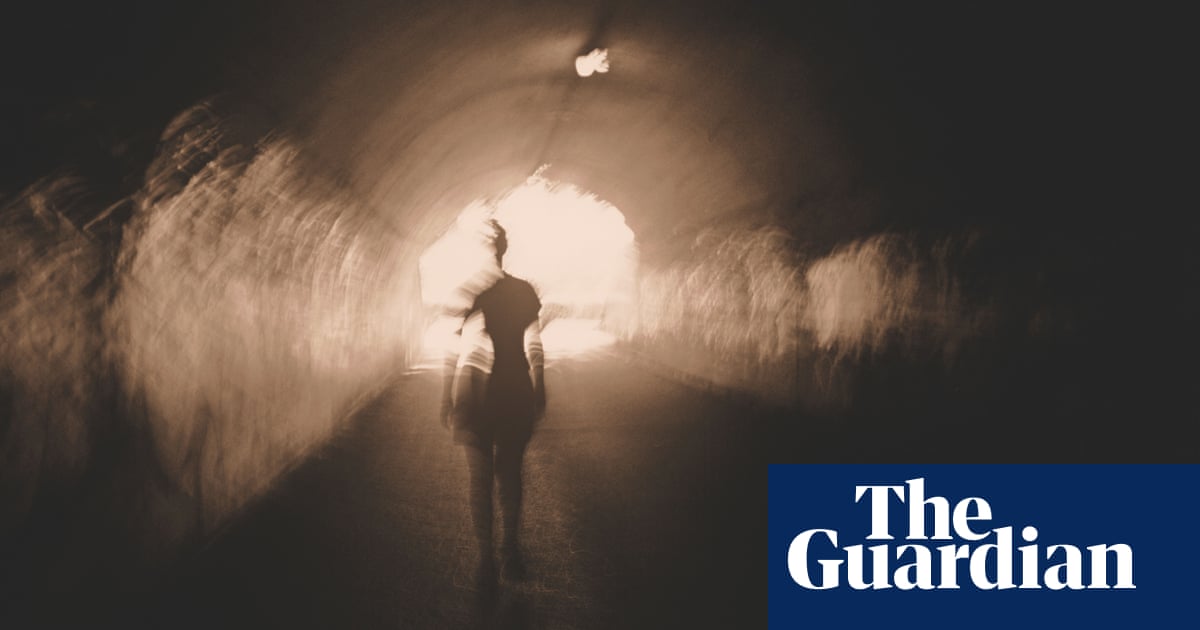- cross-posted to:
- becomeme@sh.itjust.works
- cross-posted to:
- becomeme@sh.itjust.works
New research into the dying brain suggests the line between life and death may be less distinct than previously thought
Patient One was 24 years old and pregnant with her third child when she was taken off life support. It was 2014. A couple of years earlier, she had been diagnosed with a disorder that caused an irregular heartbeat, and during her two previous pregnancies she had suffered seizures and faintings. Four weeks into her third pregnancy, she collapsed on the floor of her home. Her mother, who was with her, called 911. By the time an ambulance arrived, Patient One had been unconscious for more than 10 minutes. Paramedics found that her heart had stopped.
After being driven to a hospital where she couldn’t be treated, Patient One was taken to the emergency department at the University of Michigan. There, medical staff had to shock her chest three times with a defibrillator before they could restart her heart. She was placed on an external ventilator and pacemaker, and transferred to the neurointensive care unit, where doctors monitored her brain activity. She was unresponsive to external stimuli, and had a massive swelling in her brain. After she lay in a deep coma for three days, her family decided it was best to take her off life support. It was at that point – after her oxygen was turned off and nurses pulled the breathing tube from her throat – that Patient One became one of the most intriguing scientific subjects in recent history.
…
In the moments after Patient One was taken off oxygen, there was a surge of activity in her dying brain. Areas that had been nearly silent while she was on life support suddenly thrummed with high-frequency electrical signals called gamma waves. In particular, the parts of the brain that scientists consider a “hot zone” for consciousness became dramatically alive. In one section, the signals remained detectable for more than six minutes. In another, they were 11 to 12 times higher than they had been before Patient One’s ventilator was removed.
“As she died, Patient One’s brain was functioning in a kind of hyperdrive,” Borjigin told me. For about two minutes after her oxygen was cut off, there was an intense synchronisation of her brain waves, a state associated with many cognitive functions, including heightened attention and memory. The synchronisation dampened for about 18 seconds, then intensified again for more than four minutes. It faded for a minute, then came back for a third time.
…
I gotta say my takeaway from this is completely different than anyone else’s.
Why the fuck would you continue having kids when you know being pregnant causes severe medical issues?
I honestly wish I could understand the drive to procreate despite knowing that doing so could fucking kill you
A lot of women are still taught from a young age that much of their identity should be being a mother. And some of them (usually highly religious) are taught that it is worth dying to be a mother to multiple children.
I only have one child, because she tried to kill me.
Going through the complications, the hospitalizations, the stress on my marriage, the fear and the sorrow and the anxiety… At the time it was all devastating. But then I held my healthy, beautiful daughter and I knew we had both survived it all. There was, of course, the natural biological rush of hormones and happy chemicals to ease labor and promote bonding. For me though, there was also a feeling of invincibility and adrenaline, like I had survived jumping off a cliff after a long tortuous hike to the top of a mountain. I don’t know how else to describe it.
Sure it could have killed me, but it didn’t!
Then factor in that for any woman, people will always ask when are you having another one? Peers at Mommy and Me, family members, old ladies at the grocery store, it’a a deeply personal decision and people treat it like chatting about the weather. Other Mom’s would tell me their birth stories and say but ‘it was all so worth the pain’ and I’d think, maybe I’m a wuss. Maybe I’m not as good of a mother as they are.
Think, too, of all the other stupid shit humans do that might kill them. Have you ever smoked a cigarette? Do you drink? Cross the street without waiting for the traffic signal? Drive or ride in a car? And if so, what did you get out of it? You could have risked your life, or someone else’s, for nothing.
These women are risking their lives, but they’ve survived this ordeal before. And in return, they bring a new life into the world!
I still wouldn’t do it again, but I can’t blame any mother who does.
I don’t think you’re an hero for bringing a new life into this dumpster fire of a world
The fact that we as a species are still here and currently living in a society with things like the internet indicates two things:
-
The drive to procreate is powerful
-
That drive often overrides a lot of rational thought - I mean have you met our society?
-
My sister nearly died during her first pregnancy. She went on to have two more. When I asked her why, she shrugged and said “well, I get a kid out of it.”
That’s sorta intensely selfish. Having a second kid outweighs the idea of leaving your other kid without a mom and a partner without their partner. Like the mom from this story who now left 2 kids without their mom.
She used to chew my lego, too.
Just the one?
Lol my exact thoughts plus has she thought about what if they get any health issues because of her condition ?
Whenever I bring up shit like that everyone claims me of being a eugenicist.
I just don’t understand wanting kids so bad you’re willing to set them up for the same life you have trauma from.
Exactly that is really selfish also people having kids in war torn or starving countries .
Also third child at 24, when you don’t even know what life is yet
If you havnt had children you will never know and this applied to me as well as anyone else.
To me now: I have a love for them so much I would die to protect them, they are my legacy and life has far more meaning with them in it now.
I understand her reasoning completely.
Yeah but that’s all the reason for her not to do this. She left her other kids without a mother because she wanted more kids. It was extremely selfish and I feel sorry for her kids.
You left out the biggest assumption, you assumed she knew it was fatal, fainting is very common in pregnancy for a lot of reasons. Take away this assumption and it makes sense.
She was diagnosed, and it had to do with her heart. She knew the risk of pregnancy. It’s not an assumption, it’s right there in the article.
Again with the assumptions, you dont know when at what point. First trimester fainting is very common making it easy to dismiss and miss diagnose.
Did you read the post? She was diagnosed with a heart issue. She had seizures, that’s not common. What am I assuming?
You seem to be purposefully ignoring whole sentences in the post.
No.
I read the article unlike you. Not 3rd hand interpretation.
She had been through 2 other pregnancies successfully giving birth with the experience of non fatal complication.
Their is a lot of assumption all around here. What this thread and my comment is trying to convey is some form of reason as to WHY. Something no one can answer except her ultimately.
But my god are we all armchair experts with hindsight….
But by having more children she has died and left her other kids without a mother. What is the point of risking that to create another life when you would be abandonung your previous children. This is not dying to protect your living children, I would do that for mine, this is gambling your life to have more kids which is an important distinction.
You left out the biggest assumption, you assumed she knew it was fatal, fainting is very common in pregnancy for a lot of reasons
But seizures are not common, which is the word before fainting in that sentence
Why, evolutionarily speaking, should we have such experiences at all?
If your brain is able to find out it is in a situation where dying is highly likely, it would get the best chances of surviving the whatever-is-happening if it quickly expends all its last remaining resources reviewing its stored info and creative potential looking for any last-ditch solutions.
An offshoot of fight-or-flight, basically, or the neurological equivalent of mom-lifts-car-off-baby.
Even if brains fail to come up with any sort of solution 99% of the time, it’d still confer an advantage over just … doing nothing and giving up.
If this idea is accurate, it’d be closely related to the sensation of time slowing down during extremely dangerous, demanding, physical situations.
I’ve been in 3 situations where I knew I was going to die if I didn’t find a solution in seconds. Not merely dodging a car wreck or being scared shitless, knowing death is here and now. Saved myself each time because my brain “shutdown”.
All unnecessary thoughts, fears, etc. dropped instantly. Finding a solution was all the process my brain would entertain.
Had 2 kids since. Hopefully evolution worked as well for them in this case.
…well?? What happened!!!
He died
F
Finally beat Mario 3 without dying.
First time, I was drowning. Like a Bugs Bunny cartoon, sinking straight down with my hand in the air, 3 times. Never happened before or since.
Second time, I was frying on an electric pole. Grabbed a guy wire, that shouldn’t have been electrified, support only, but it was. Rocked and screamed like a schizophrenic.
Third time, the toughest guy I’ve ever known was quite intent on torturing me to death. Seems there was a misunderstanding about a neighbor getting busted for drugs.
Got out by:
Chilled. Remember my childhood lessons on floating. Go my lips above water, got a sip of air. Kept doing that till I could float. LOL, and my friend was a certified lifeguard and only 40’ away! Damn her.
Couldn’t move from the waist up, locked on that wire. Realized I could still control my legs. Pushed off on the telephone phone till I broke loose. (Scared of heights, then and now, didn’t care.)Landed in a rotten bush, surrounded by chicken wire stakes, bumped my ass. I was shaking for 20-minutes. Finished the internet install.
Kinda blotted the third one out. If I had panicked or acted scared, I have no doubt he would have… begun. I chilled and calmly explained, while this giant is sitting on my chest, that I had zero motive to narc. Kept it simple and factual, kept calm. Got let go.
I’d like to know if this could be turned into some sort of last chance jump start your brain treatment to let at least a few survive
Not really. The problem is not mainly that higher level functions are not there. It is a problem, but the problem is a lack of basic functions, especially breathing. This is in a way a test we do for brain death - disconnecting the patient from the ventilator for 2 minutes to check for spontaneous breathing,
Can mom really lift car off baby tho ? Or is that just a saying ? I’m gonna go with the latter do feel free to correcte tho .
Edit : Ty for all the answers
We actually use very little of our muscles full strength. In fact most of thee initial strength gain of weight lifting isn’t actually an increase in muscle, but of control. Under enough adrenaline the limiters come off. 5-20x normal is completely possible.
The catch is the damage. Our tendons and supporting muscles are not built for the forces. Dislocations and tendon damage are severe, if full power is used. It also damages the muscle itself. A lot of the overhead is to allow for sustained functioning. Burning it all at once works, but it can’t be sustained without destroying the muscles involved.
Basically, the body self protects. When required, emergency power can be unlocked, for a price.
Yes, mom likely to seriously injure herself though. Someone already posted a wiki on hysterical strength. Basically our muscles have limiters so we don’t injure ourselves(your muscles can tear your own tendons and break bones). In certain situations(such as your kids being crushed by a car) those limiters get bypassed.
I was using it in the meme-ey sense, to stand in more generally as an example for adrenaline-fueled feats of strength. I don’t know if that specific idea has a sound, well-documented reality or is just a meme though. Would not be difficult to look up where the meme came from, I’m sure.
In 2011, Japanese doctors reported the case of a young woman who was found in a forest one morning after an overdose stopped her heart the previous night; using advanced technology to circulate blood and oxygen through her body, the doctors were able to revive her more than six hours later, and she was able to walk out of the hospital after three weeks of care
What the fuck?
It was probably very cold outside, and the patient had some unique circumstances.
From my maritime first responder training: “You’re not dead until you’re warm and dead.”
That’s just wild. I always heard oxygen deprivation leads to brain damage and stuff?
Between 30-180 seconds of oxygen deprivation, you may lose consciousness. At the one-minute mark, brain cells begin dying. At three minutes, neurons suffer more extensive damage, and lasting brain damage becomes more likely. At five minutes, death becomes imminent
The cold shields from this.
You only need oxygen when you’re using it for something, but when your body is cooled to the point of chemical inactivity, you don’t need any, so your brain isn’t damaged by the lack of it.
Idk about 6 hours, but I do know there’s a woman who was trapped under ice for 80 minutes, (although conscious for 40 of it, as she found a pocket of air first)
https://en.m.wikipedia.org/wiki/Anna_Bågenholm
According to the journal Proto (published by the Massachusetts General Hospital), Bågenholm’s metabolism slowed down to ten percent of its baseline rate and thus she barely needed any oxygen at all
Like the other person (or persons) said, “you’re not dead until you’re warm and dead”
fascinating. I wonder where the line is between the cold preserving the body and the cold causing hypothermia that could lead to death.
Idk about humans, but there’s a species of squirrel which get their body temperature to below freezing during hibernation.
https://en.m.wikipedia.org/wiki/Arctic_ground_squirrel
During hibernation, its core body temperature reaches temperatures down to −2.9 °C (26.8 °F)[14] and its heart rate drops to about one beat per minute. Peripheral, colonic, and blood temperatures become subzero. The best theory as to why the squirrel’s blood doesn’t freeze is that the animal is able to cleanse their bodies of ice nucleators which are necessary for the development of ice crystals. In the absence of ice nucleators, body fluids can remain liquid while in supercooled state.
Nature do be crazy
Life finds a fuckin way holy shit
That’s pretty much in line with my experience. My heart apparrently stopped for 8 seconds back in January. I never knew it.
I was in a hospital, waiting to be transferred to a 2nd hospital for treatment. Had gone to sleep.
I woke up and was fiddling with my phone when the nurse came in…
“We you asleep about an hour ago?”
“Yeah, why?”
“Your heart stopped for 8 seconds.”
“Um… thanks? I guess? I don’t know what to do with that information.”
If they hadn’t told me, I never would have known.
Something that might be related is the burst of functionality that mammals seem to get, just before dying. In pack animals, an otherwise crippled animal can get up and leave the den. Biologically, this is to get the dead body away from the den site.
Something similar can happen in humans. A dying patient will suddenly perk up and seem to make a miraculous recovery. Nurses unfortunately know that this is false. The patent will burn out and crash soon after. Patents in this state apparently get a feeling of impending doom. This is likely what drives other mammals from the den/nest site.
What they are seeing might be related to this. The brain gives up on survival, in order to try and not risk the health of family members. Often the damage would be too severe, and so the patient doesn’t wake up. They just get a burst of neural activity as priorities suddenly change.
This seems very plausible and evolutionarily justified
No it’s not to get the dead body away from the site. It’s the body, human or animal, giving its last hurrah as a final effort against death. Life, once established is tenacious and doesn’t die without a fight if it can help it.
Life attempts to propagate its genes. Just look at salmon, or bees. Both are willing to die to help the next generation.
Leaving a corpse in a den could kill your offspring via disease. Recognising that survival is no longer viable, and acting to protect them makes complete sense.
How do you genetically/evolutionarily select a trait like that? Animals that wander off to die wouldn’t be more successful at breeding or survival.
Don’t measure by just breeding, measure by how many grandchildren they have.
An animal that has 10 babies, but they all die, doesn’t pass on its genes. A wolf that dies in its den, causing some of its offspring to die is hurting its own genetic heritage.
It’s also worth noting that genes can be selected for at the tribe/pack level. You don’t need to breed, so long as your sisters/brothers/cousins/parents breed.well enough to compensate.
At the extreme, you have things like bees. A normal bee is sterile. It’s completely reliant on its specialist brothers and sisters to propagate its genes.
Animals that wander off to die wouldn’t be more successful at breeding or survival.
Not directly, but they are more successful in preserving their relatives.
A corpse in the den could attract predators or scavengers and could bring diseases. If the dying animal wander off, the corpse will be found far away from the den so its offspring has a chance to not be found from predators and scavengers and that a disease don’t kill/cripple them.
deleted by creator
This sounds like an explanation for “seeing the light”
From what I know, the brain just dumps the rest of its brain activity before death and the overstimulation is like one of the best highs you could have before dying. It’s like a safety mechanism to make dying less painful.
This is the third time I’ve come across an article like this, and they all line up with my theory of dying.
First of all, Humans have the unconscious ability to alter their perception of time. From moments that last forever, to years that pass in a flash. I think when we really pay attention, and are really ‘tuned into’ what’s happening, we become more perceptive, and things just slow down. Like the first time you watch an epic movie, where the cinematic shots seem to take their time in delivering the ‘feeling’ of the scene. And upon a rewatch, now it seems like those slow set-up shots are slightly faster. What’s changed? well, you were on the edge of your seat when you watched it the first time. You slowed your perception of it without really being aware that you did it.
Secondly, the afterlife is fake, but heaven is real. That sounds paradoxical, but let me explain. There is no evidence to suggest that there exists some deity or that they created a big ‘afterparty’ for every ones . But, we have had people technically die, and then come back reporting that they saw their grandparents, or old dog, or a bright inviting light. This is where my first posit comes into play. When you die, your brain gives you one last hurrah. As evidenced in this dying patient, and countless other studies showing a massive dopamine and serotonin rush. What I believe, is that during this time, your perception of time plummets, and you hallucinate, envision, dream (whatever you wanna call it), whatever you want. But not just what you want, what you expect. Remember, this is a personalized, once-in-a-lifetime hallucination. You’re dying, you know it, and whatever you’ve decided happens when you die, is what you experience. If you think you deserve heaven filled with all your old friends, pets, and donuts, well, that’s what you’re going to get. If you’re raised catholic and lead a terrible life, thinking you deserve hell, well, that’s what your experience will be.
I imagine that this trip can last, ultimately, however long you want. You’re not stopping time, just your perception of it. At least, that’s my theory.
This was a really interesting read. I like the theory. How do you account for someone who dies suddenly. Like if they are blown to pieces in a war or just accidentally. Do those people just not get this “last hoorah”?
Not OP, but I would imagine they still do, because it’s a function of the brain in general, not in the brain knowing death is coming. It’s just that when they’re dying in a hospital, it’s more likely that the equipment and staff will be present to read these brainwaves and whatnot.
This is also a concern of mine. My thinking is that you’ll need to maintain an intact Central Nervous System for this to occur. If death is the result of traumatic brain injury, I can’t imagine that this would occur. But as long as you have an intact brain/spinal chord, you’re good.
I’m guessing in those cases they don’t get a last hoorah
Ghosts
I have had kind of the same idea and it’s why I kind of agree with certain end of life religious practices meant to ease a person’s mind before they die because what you’re thinking about while you die is the real heaven or hell. If you’re calm and accepting of death, you’ll get heaven. If you’re afraid and regretful, you’ll put yourself through hell.
My girlfriend and I reasoned that this exact same conclusion, so it’s so weird and awesome seeing this in the wild!
We also thought of the quantum energy stored in the microtubules of the brain possibly holding onto consciousness itself. Thus, when they found that all of them release said quantum energy at the time of death, we felt pretty vindicated.
I think something like what you outlined above, and we came to the conclusion that people going where they believe in is the only real, logical, and evident thing that happens after we die. Otherwise, how could someone see Jesus, someone else see Ra, and someone else see nothing at all? I think that whatever we believe will happen to us after death is what will happen to us. Like you said, there’s a lot of power in the mind, including the power to bend time. Pick a belief, and I think it’ll serve you well.
It’s the shutdown processes of uploading the life-memory-consciousness to the God-cloud
I wasn’t gonna be the first to say it, but it occurred to me that a burst of activity concentrated in the memory and consciousness areas of the brain is what an in-process backup of a human mind would look like.
Better keep your Google Drive subscription active for as long as necessary to find load into a bones host
They should find a way to download that to some kind of chip and later upload it into a new cloned body in the future, as some type of reincarnation
more like a replay of memories one last time.
I came pretty close to death I think - I was home recovering from a surgery and woke up early in the morning, short of breath, my heart was racing, and literally felt like it stopped. Naturally, at that time, my bladder decided it need to be relieved so I stumbled breathlessly into the restroom and did my thing. When I stood up, started to lose my hearing and vision for a few seconds, and felt myself starting to collapse, but I managed to catch myself and things restored, I face planted on my bed which got my wife’s attention and 911 was called. All of this was due to a massive pulmonary embolism choking my heart I later learned. The embolism was caused by a clot which traveled up my leg.
Lesson learned: Keep moving after recovering from surgery at home kids! Your life depends on it.
I imagine that your brain probably goes into sleep mode while your body is trying to recover from something extremely traumatic to try to preserve resources. And if it looks like you’re going to die anyway then there’s no reason to keep preserving resources and the brain needs to run full-tilt to see if it can come up with a solution quickly.
All of you science loonies trying to understand something as easy to understand as your dormant psionic powers trying to resurrect you but ultimately failing…😒😒😒
That’s enough internet for today.
Has no one said anything about dmt?
I wonder if the brain waves are the same kind people have when they smoke deemz
You don’t and can’t restart a heart if its stopped a shock does FA. You can only shock a rhythm that permits a shock, which is VF or VT. I stopped reading after that level of stupid.
Here is the link to the paper by the professor mentioned in the article where it seems that they have confirmed this in animal deaths and with 2 out of 4 humans tested
https://pubmed.ncbi.nlm.nih.gov/37126719/
Maybe the journalist got it wrong but it is an interesting research that would be foolish to dismiss just by reading half way through a Guardian article
Not maybe, the Journalist definitely got it wrong.
Thanks for the link all the same it’s an interesting study.

















